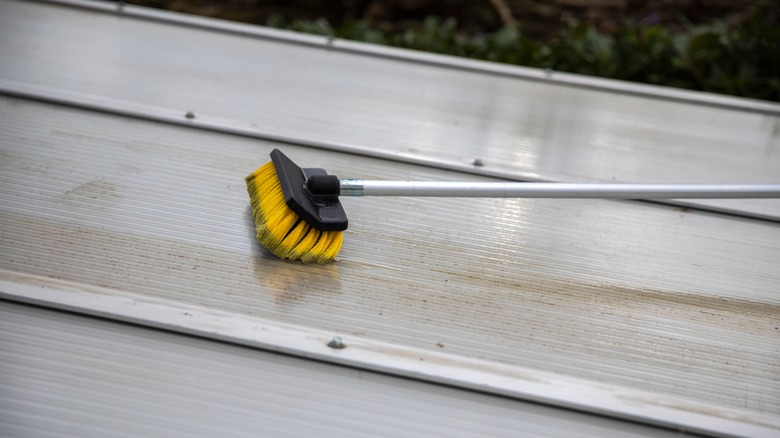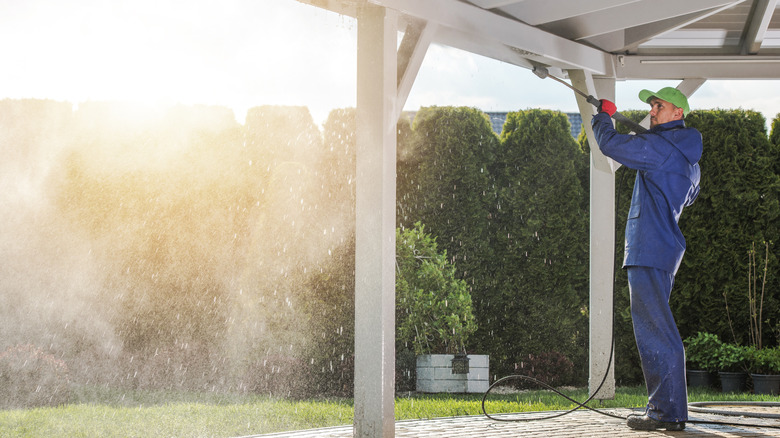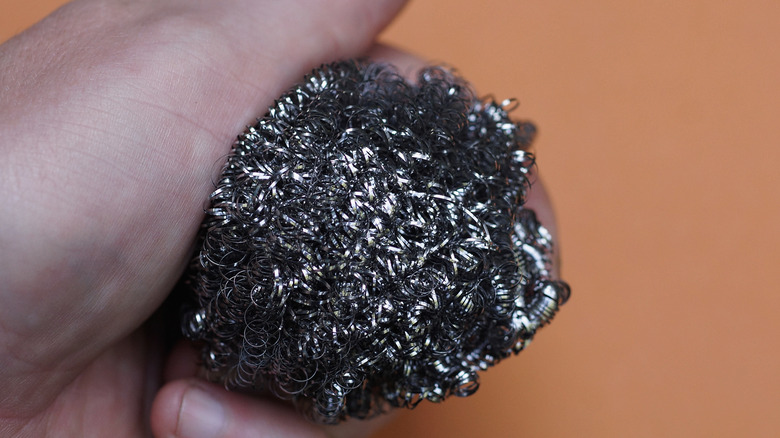How To Safely Clean Aluminum Patio Covers Without Damage
Patio covers are a great way to add shade to your backyard sitting area and provide protection for your belongings. Compared to other styles and materials, aluminum covers are affordable, pest-proof, and low maintenance. Another bonus: They're easy to clean, as you can just use a soft brush or a pressure washer on low setting to safely clean your aluminum patio cover without damage.
While you don't need to worry about cleaning every week or even every month, regular cleaning is important for removing dirt and debris that can lead to mold and mildew build-up over time. The longer you let your patio cover go without cleaning, the harder it will be when you finally get to it. Some experts recommend cleaning your aluminum patio cover at least twice a year, while others say every two to three years is acceptable. The right cleaning schedule for you partially depends on how much dirt, snow or rain your patio cover tends to get throughout the year. In between deep cleanings, regularly clear leaves, dirt, insects, and other debris from your aluminum patio cover with a blower, broom, or hose. This helps prevent mold or mildew from organic debris sitting for an extended period of time.
The downside of aluminum is that it's less durable than wood and can dent easily. It may also scratch or lose some of its paint if you don't follow proper cleaning protocols. Here are some simple do's and don'ts to clean your aluminum patio cover safely.
The right way to clean an aluminum patio cover
To deep clean your aluminum patio cover, you have two options: Pressure washing or manual scrubbing. Use a ladder to reach the top of the patio cover, and don't forget to cover plants and properly store your patio furniture away from the soapy water.
To pressure wash the patio cover, add a house and deck wash to the spray. Using low pressure, apply it to the entire patio cover, moving back and forth to ensure coverage. Don't forget to clean the underside of the patio cover. Let the wash sink in for a few minutes, but don't let it dry; it's best to avoid using this method in direct sun for this reason. Lastly, thoroughly rinse with plain water on higher pressure, making sure to stay at a safe distance of at least one foot away.
Hand-scrubbing is also effective. Create a cleaning solution by mixing a mild soap or detergent with water. Apply it all over. Then scrub with a soft brush or cloth to lift all grime and stains. A long-handled mop or scrubber may help clean hard-to-reach spots. Rinse with a hose, and then wipe dry to avoid streaks or spots. If the underside has grease residue from cooking outdoors, you can also use a degreasing detergent. If mold or mildew is present, you can apply a bleach solution, TSP solution, or an outdoor fungicide. However, there are some caveats to know to avoid damage.
How to avoid damage to your aluminum patio cover
To avoid damage, it's important to use the right products. Recommendations for the best soap for your patio cover vary — some even use car wash soap or laundry detergent. In general, any mild soap, detergent, kitchen cleaner, or deck wash should work. TSP — which can help remove dirt build-up, mildew, and mold — should be used with caution, as it can potentially react with aluminum and result in erosion or darkening. One example of how much TSP to add to your cleaning solution is ⅔ cup TSP to ⅓ cup detergent and 1 gallon of water. Also use caution with acetone, which can help with degreasing but could remove the paint with too much scrubbing.
Similarly, consider your tool usage. Don't scrub too hard or use abrasive brushes, cloths, or sponges, which can scratch aluminum. If you're using a pressure washer, avoid using ultra-high pressure or holding the nozzle too close to the patio cover. Make sure to use the lowest pressure setting at first, and stick to low pressure on any decorative details. Don't direct the spray at any of the caulking around the screws.
Finally, stick to a ladder to reach the top. Don't try walking on it unless you've been given the all-clear from your installer that it can safely hold your weight. Aluminum is lightweight, and not only could you damage the patio cover by walking on it, but you could also put yourself at risk of an injury.


